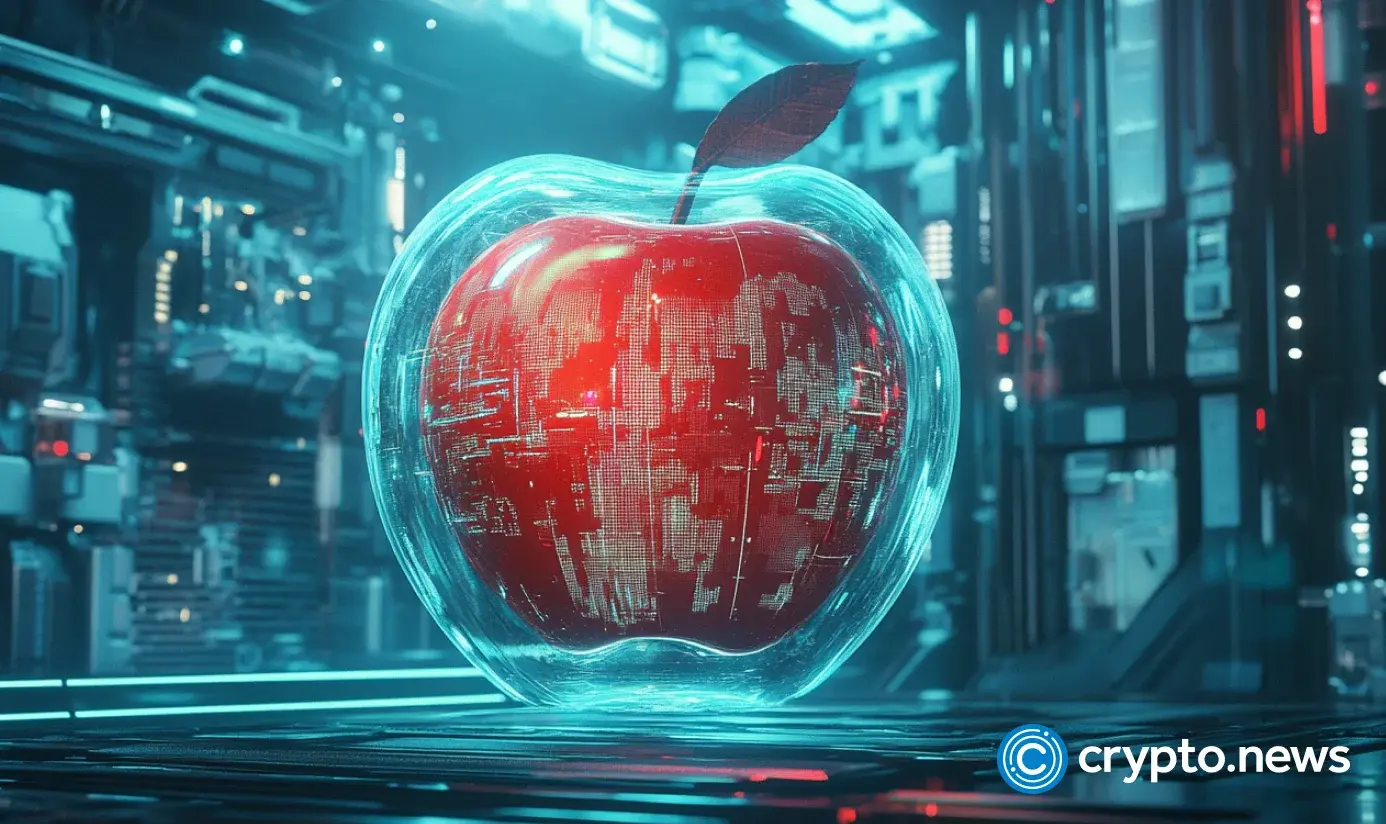Disclosure: The views and opinions expressed here belong solely to the author and do not represent the views and opinions of crypto.news’ editorial.
Chatbots blew our minds when they first emerged more than a year ago. Having a conversation with an AI as if it were a human in the next room, seeing it summarize complex ideas—it felt like the dawn of a new era. But since then, the state of development has become fragmented in interesting ways.
Despite all the excitement and the billions poured into AI development, where are the truly transformative applications? Apple, Microsoft, and Meta have had over a year to integrate AI into their ecosystems, yet their biggest AI breakthroughs amount to incremental improvements to existing products. Microsoft put a chatbot in Word. Meta put one in Instagram. Apple’s flagship AI project? A delayed Siri upgrade that still hasn’t arrived.
The momentum is instead with independent developers, who are racing ahead, building AI agents that can write and deploy entire software applications, autonomously manage investment portfolios, and generate real-time content in completely new formats. The most meaningful innovation isn’t happening inside Big Tech. It’s happening at the edges, among scrappy builders who see AI not as an added feature but as the foundation for something entirely new.
Corporate resources are no substitute for innovation, and defending moats is a risky strategy in the middle of a technological shift. Today’s leading tech companies are falling behind, slowed by internal complexity as they cede ground to more agile, imaginative, and unencumbered challengers.
Big Tech has everything it needs to win AI—and yet, it won’t
Apple, Microsoft, and Meta have near-infinite resources, armies of engineers, and some of the biggest AI research budgets in the world. On paper, they should be dominating the AI revolution. Instead, their AI strategies look like patchwork fixes. Rather than building something fundamentally different, they’re trying to shoehorn a radically new technology into their existing product lines.
Take Apple. The company that once revolutionized personal computing, mobile phones, and digital payments is now struggling to deliver a timely AI-powered upgrade to Siri. It has the data, the talent, and the resources, but it’s still failing to integrate AI into its ecosystem in a meaningful way.
Microsoft, Meta, X, and other tech heavyweights similarly have thrown their might and corporate resources at AI, but all have more or less come up with the same application: a chatbot.
All of this is not to suggest these companies are being complacent or ignoring the more innovative uses of AI. Microsoft has deeply integrated AI into productivity software, Google is embedding AI into search, and Apple is rumored to be developing AI-powered device processing. But their approaches remain cautious, designed to add to what already exists rather than build something entirely new. They are fundamentally defensive moves, trying to preserve their existing empires instead of embracing the unknown. And they’re making a critical mistake.
Incumbency can be as much a hindrance as an advantage
While known for their iconoclastic origins, the dot-com pioneers are all grown up now. Mark Zuckerberg is no longer the hoodie-wearing college dropout disrupting the internet with a scrappy startup. He’s a corporate tycoon running one of the world’s largest ad empires. The Facebook that once moved fast and broke things is now slow, cautious, and reactive—a company trying to squeeze AI into its existing business model rather than building something radically new.
And history is clear: being slow to adapt is how giants fall.
Yahoo had every opportunity to dominate the internet, but it dismissed search as a secondary feature, failing to recognize its central role in the nascent online economy. Google took search seriously—and built an empire around it.
Microsoft was the undisputed leader in software, but dismissed smartphones as a niche market. By the time it realized its mistake, Apple and Google had already divided up the mobile world, leaving the Windows Phone dead on arrival.
IBM, once the gold standard in computing, underestimated the rise of cloud architecture. While Amazon quietly built AWS into the backbone of the internet, IBM remained focused on enterprise hardware and services—betting on the past while the future passed it by.
Now, the tech founders we once idolized as rule-breakers and disruptors have become the establishment—and they’re making the same mistakes. AI isn’t just another feature to be bolted onto Word, Instagram, or Siri. It’s an entirely new paradigm—one that demands new business models, new interfaces, and new ways of thinking.
True AI innovation is driven by the unconstrained
Some of the most compelling and innovative AI applications aren’t emerging from expensive R&D Labs—they’re being built by small developer teams shipping products over a weekend. These developers aren’t adding AI to existing products; they’re building entirely new products with AI at their core.
We’re seeing tools that can autonomously trade and manage crypto portfolios, generate interactive lessons on any subject in seconds, and spin up full-stack web apps from a single prompt. And increasingly, we’re seeing developers embrace AI’s unexpected strengths—improvisation, humor, and surprise.
One standout example is AI Dungeon, a web-based game where AI narrates an unfolding story based on player prompts. It can generate characters, plot twists, and environments in real-time, adapting with every user interaction. It’s a case study in what dynamic, user-driven content might look like in an AI-first internet.
Another is SceneCraft, a tool that lets tabletop game masters generate narratively consistent fantasy scenes from just a few lines of story setup. Used by players of games like Dungeons & Dragons, it stitches together visual art, character design, and lore—all in real time—to help players immerse themselves in custom-built worlds. It’s not an AI layer on top of an existing game engine or productivity suite—it’s a wholly new type of product, born from the creative possibilities of AI itself.
This kind of experimentation is reminiscent of the early App Store era, which in turn echoed the era of the early internet. In both cases, what started as a flood of oddball experiments, viral hits, and personal projects laid the foundation for entirely new platforms. What looked like play was, in hindsight, the beginning of a seismic shift.
And that’s the point. The freedom to explore ideas that don’t have to scale, fit a roadmap, or serve an existing customer base is exactly what creates the space for these projects to break new ground.
AI won’t be won by the companies stuck in the past
Every technological shift brings a new class of winners. Earlier pivot points elevated companies like Google, Amazon, and Facebook, while others like Yahoo and IBM struggled to adapt to a rapidly evolving landscape. The smartphone revolution catapulted Apple and Android to dominance, while Microsoft, Nokia, and BlackBerry failed to adapt.
AI will be no different. The companies that truly define this era won’t be the old guard—they’ll be the scrappy, relentless newcomers who build AI-native products that unapologetically break from the past.










